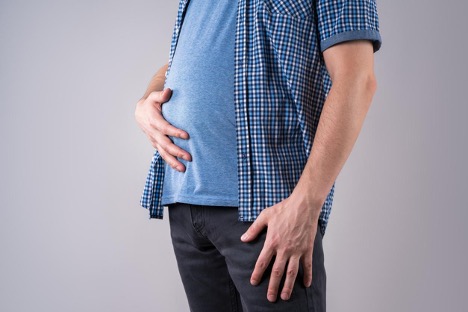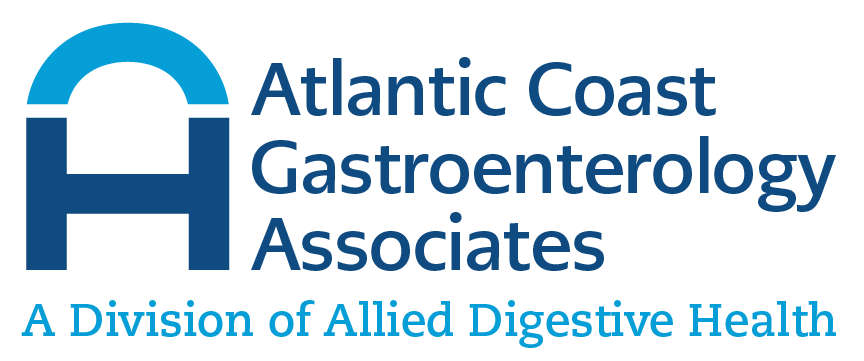
- January 26, 2023
Is Bloating a Cause for Concern?
Occasional bloating is usually nothing to fear. It may be related to your diet, a minor gastrointestinal upset, stress, or a menstrual cycle. Stomach bloating occurs when your belly inflates, and you feel uncomfortable. Often, it’s because you have too much gas in your gastrointestinal tract.
Some people attribute it to eating “gassy” foods like beans, Brussels sprouts, and broccoli.
But frequent, painful, persistent bloating is a cause for concern. Call your doctor if you’re concerned about it because your stomach is painful, hard, distended, or causing severe and persistent nausea. These could be signs of a serious condition like appendicitis.
When Bloating Is a Sign of Something More Serious
Bloating is a well-studied phenomenon. Studies suggest that 96% of all people occasionally suffer from stomach bloating, and 70% of us suffer more frequently. Irritable Bowel Syndrome (IBS), acid reflux, and constipation are three common causes.
You should contact us if you notice:
– Extreme pain
– Nausea that lasts more than 48 hours
– Intense nausea, the sort that makes you “dry heave” even after you vomit
– Sensitivity around your abdomen
– Rapid or surprising weight loss
– Decreased appetite or feeling full even if you don’t eat much
Weight loss, especially if you haven’t made any significant diet or lifestyle changes, is one of the most significant causes of concern.
Weight Loss Paired With Bloating Is Cause for Concern
Obesity is an issue in the US. According to the Centers for Disease Control (CDC), nearly 42% of Americans are dangerously overweight. Most of us know this and try to manage our weight with varying success rates with diet or exercise.
If you’ve recently started dieting and exercising, you might notice weight loss, which may or may not be a cause of concern related to your bloating. Be sure to discuss your new habits with your doctor.
If you haven’t made any lifestyle changes lately and are surprised by sudden weight loss, this is a cause of concern. Your rapid weight loss could be caused by serious conditions, like:
– Tumors pressing on your intestinal tract
– Ulcers within your gastrointestinal tract
– Peptic ulcer disease
– Parasites
– And ascites
Ascites Explained
Ascites occurs when fluid collects in spaces within your abdomen, and it’s associated with liver disease. It can be painful if severe and may prevent you from moving around comfortably. Ascites are dangerous because they can set the stage for an infection. Fluid may also move into your chest, putting pressure on your lungs and making breathing difficult.
A patient cannot self-diagnose ascites. Just know that it’s time to schedule an appointment if you’re struggling to breathe or notice difficulty moving or bending over.
Abdominal Pain Paired With Bloating: A Cause for Concern
When paired with bloating or distension (when your belly protrudes and sticks out), intense abdominal pain is a cause for concern. Numerous conditions could cause this, like:
– Appendicitis
– Gastrointestinal disease
– Lactose or gluten intolerance
– A variety of cancers, some very dangerous
Remember, almost everyone experiences occasional gastrointestinal upset at some point in their lives. It’s intense, frequent, long-lasting abdominal pain paired with bloating that is a cause for concern.
More bloating causes for concern are blood in the stool and abdominal bleeding.
Blood in the Stool and Abdominal Bleeding May Be Causes for Concern When Paired With Bloating
Blood in the stool can manifest in different ways, and it may be a cause for concern.
– If your stool looks like coffee grounds, it’s probably caused by a stomach ulcer.
– If your stool has small streaks of red blood, there may be a small tear near your anus.
– It may be a medical emergency if your toilet fills with lots of blood during a bowel movement.
The sight of even a tiny amount of blood in your toilet can be frightening, but it’s not uncommon, and there’s no need to panic. But significant amounts of blood, especially when paired with bloat and pain, could be signs of:
– Inflammatory bowel disease (IBD)
– Ulcers
Bleeding inside your abdomen is difficult to self-diagnose and may present like ascites. If you suspect fluids are collecting in your abdomen because you feel a lump or edema, get in touch with us immediately. We realize this might be frightening, But remember, it might be harmless, and you’re better off knowing the truth.
Why Fever and Bloating Are Causes for Concern
Fever is almost always a sign of infection. Your body increases its temperature, making it difficult for unwanted microorganisms to reproduce. If you’re suffering from a fever with bloating, you may have a gastrointestinal infection, also called a “stomach bug” or “tummy flu.”
Or, you may be suffering from liver disease and experience ascites.
Fever and bloating are common with Pelvic Inflammatory Disease (PID), which causes pain and inflammation of a female’s ovaries, uterine lining, and fallopian tubes.
Ultimately, it’s time to seek medical attention if your fever lasts more than a few days or if your bloating is painful.
Other Causes of Bloating
Every human is an individual. Remember that occasional bloating can be affected by your:
– Genetics
– Diet
– Food sensitivity
– Intestinal bacterial overgrowth
Exercise patterns
– New medications
– Menstrual cycle
– And stress that causes gastrointestinal upset
Occasional bloating and “gas” are not causes for concern. Bloating by itself is not a disease, but it can be a sign of a more serious condition. So, how do you know when to contact a professional? Keep reading.
Summing It Up: When to Seek Medical Attention for Bloating
Get help right away if you experience:
– Intense nausea with painful bloating
– A fever that lasts more than two days
– Rapid, unexplainable weight loss
– Lumps or bumps anywhere in your abdomen, whether they’re firm or soft
At Atlantic Coast Gastroenterology Associates, our teams specialize in gastrointestinal disorders. We offer state-of-the-art technology blended with human compassion and experienced staff. Your bloating might be caused by gas, and it may be time for a more thoughtful diet. Your bloating may be related to something else. Either way, you’ll sleep better knowing you’re getting outstanding treatment and the genuine care you deserve as a patient.
Footer
Quick Links
Locations
Brick Office
732-458-8300Brick Medical Arts Building
1640 Route 88, Suite 202
Brick, New Jersey 08724
Neptune Office
732-776-9300Jersey Shore Medical Arts Building
1944 Corlies Ave. Suite 205
Neptune, New Jersey 07753
Jackson Office
732-928-2300706 Bennetts Mills Road
Jackson, New Jersey 08527
© All Rights Reserved
